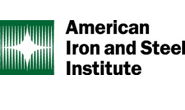Government/Policy

February 3, 2022
AISI Lauds COMPETES Act Provisions That Address Unfair Steel Trade
Written by Tim Triplett
House passage of the America COMPETES Act this week proposes greater investment in American manufacturing and scientific research, as well as changes in trade policy to counter China’s growing economic influence around the world. But the measure must still overcome strong partisan opposition to reconcile it with the Senate version before it can become law.
![]()
The Senate passed its version of the measure in June on a bipartisan basis. The House bill passed Friday in a 222-210 vote, almost along party lines. Making the most headlines are provisions in both bills that would provide federal incentives to help bring semiconductor manufacturing back to the U.S. But it’s language in the bill addressing unfair trade practices by China and other bad actors that’s of most interest to steel.
The American Iron and Steel Institute (AISI) issued a statement Friday lauding passage of the measure, which incorporates provisions of a prior bill known as Leveling the Playing Field Act 2.0. These provisions will strengthen the U.S. trade laws by enhancing the tools available to obtain more expeditious relief against repeat offenders, addressing the growing problem of cross-border subsidization and ensuring timely completion of anticircumvention inquiries, AISI said.
“As China and other export-oriented economies develop new ways to evade and circumvent U.S. trade remedy orders, it is critical that our trade laws be updated to respond to these challenges. We are pleased that the House has taken the first step toward adopting these important strengthening amendments to our trade laws,” said AISI President and CEO Kevin Dempsey.
Dempsey pointed to one example of the cross-border subsidization that this legislation aims to address – a 3 million metric ton stainless steel mill built in Indonesia by Tsingshan Holdings Group, a Chinese steel company, with the primary purpose of exporting stainless steel to other markets around the world. Through its “Belt and Road Initiative,” China helped subsidize the development of this new steel capacity in coordination with the Indonesian government, which also imposed a ban on the export of nickel ore to incentivize stainless steel production in Indonesia.
“This legislation will strengthen the effectiveness of the U.S. trade laws and will give American workers the confidence that their government has every potential tool available to fight for a level playing field against foreign competitors that seek to cheat the system,” Dempsey said.
By Tim Triplett, Tim@SteelMarketUpdate.com







